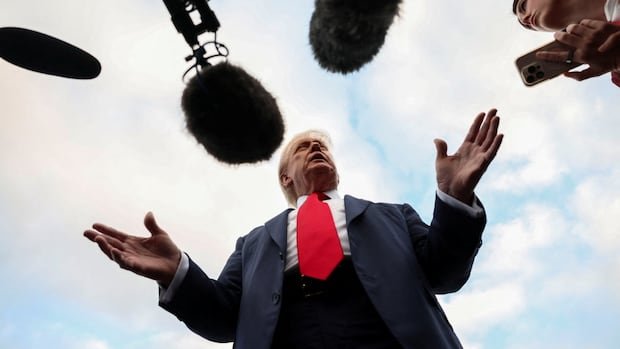In a recent series of events, the Trump administration has found itself embroiled in conflicts on multiple fronts regarding the ridicule and criticism directed at the 47th U.S. President. Speculation abounds that CBS may have canceled “The Late Show with Stephen Colbert” due to Colbert’s recent critique of parent company Paramount Global’s $16-million settlement with Trump over a “60 Minutes” interview. Concurrently, the White House has launched counterattacks against the animated show “South Park” and ABC’s “The View.”
The latest season premiere of “South Park” satirized Trump and the CBS-Colbert controversy, showcasing a scene where a naked Trump joins Satan in bed. Additionally, a co-host on “The View” accused Trump of harboring jealousy towards former President Obama’s physical appearance and marital life.
Despite Trump’s penchant for mocking his detractors, any attacks on his image, persona, or brand trigger strong reactions from him. Initially expressed through Twitter rants in his first term, there are now concerns that Trump is leveraging his authority in his second term to influence corporate decisions and address grievances, particularly within the media and entertainment sectors.
Advocates for freedom of expression emphasize the constitutional protection and importance of political satire and parody in public discourse. They argue that lampooning political figures, including the president, has long been a tradition in the United States and is fundamental to upholding the First Amendment.
As the cancellation of “The Late Show” unfolds, Trump appears to revel in the aftermath, hinting at potential repercussions for other critical shows like “Jimmy Kimmel Live!” This move has drawn criticism from various quarters, with concerns about a chilling effect on satirical commentary and the stifling of criticism against the administration.
Efforts to suppress political satire and criticism are viewed as counterproductive by experts, who stress the role of satire in enhancing media literacy in an era marked by misinformation. Despite attempts to silence satirists, these forms of expression continue to evolve and adapt to circumvent censorship.
The administration’s recent clashes with comedians and media personalities signal a broader trend of curtailing free expression. Critics argue that these actions, along with other instances of restricting speech, demonstrate a growing pattern of intimidation and censorship by the Trump administration, posing a threat to democratic values and public discourse.

